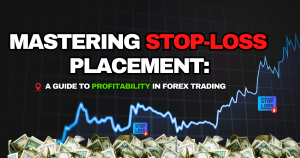Behind the Screens: True Stories and Experiences from Traders March 12, 2025

Trading may seem overwhelming to the average person due to the complex nature of the financial world and the fast-paced environment of the trading floor. There has long been a common misconception that it requires years of experience and an innate talent for market analysis to be a trader. However, seasoned traders often describe their profession as one that demands resilience and an appetite for uncertainty.
Yet, behind the scenes, there are many untold stories – some amusing, others devastating, yet they are worth sharing and each with its own valuable lesson. These are the true stories experienced by the authors themselves.
A Slip That Cost Millions
The first story took place at a trading simulation competition held on the trading floor, where every second mattered. Among the participants was a trader tasked with executing orders from a fund manager, who gave clear instructions to buy 100,000 shares. However, in a moment of haste, she mistyped the order with an extra zero. Instead of buying 100,000 shares, she bought 1,000,000 shares. By the time she realised her mistake, it was too late! She panicked and hurriedly tried to retract the order, but then the large order was filled. She thought to herself, how could I have made such a rookie mistake?
This kind of order entry error is well known within the trading community as a fat-finger error. The term “fat-finger” is a symbolic meaning that a trader unintentionally pressed the wrong keys and made erroneous orders. The fat-finger error the participant made sent a shockwave through the simulated market, causing the stock price to surge, leading to an overvaluation. This prompted the other traders to react and capitalise on the inflated price by selling off their holdings. Consequently, her portfolio became heavily weighted with overvalued shares. Eventually the stock’s price corrected itself, resulting in a significant unrealised loss for the portfolio amounting to US$5.5 million.
How to Avoid a Fat-Finger Error
A trader can avoid making fat-finger errors by checking the order before submitting. It can be helpful to go through the entire order details one by one; one may choose to read it aloud to themselves to ensure the order is correct. Traders who tend to be hastier could also remove one-click trading functions; this is an additional step where the order summary is previewed before submission. Any correction can still be made at this stage.
However, despite this measure, human errors can still happen. What separates a good trader from a great one is the ability to react quickly and minimise losses, even in the face of unexpected errors.
Measure Twice Cut Once
The second story highlights how traders handle mistakes. One night, a trader was tasked to clear some positions with several counterparts. The previous trader had been rotated due to mistakenly mixing up the volume for forex with metals resulting in an unintended large order for metals. Before he began his shift, he was explicitly warned not to make the same mistake.
However, upon entering the volume and submitting the order, he gasped in horror when he realised the previously incorrect trade volume had not been adjusted, and he `had unknowingly submitted the incorrect order again, repeating the same costly mistake. The trader had just taken on a US$250 million position. Each dollar change in the price of gold would have resulted in a US$100,000 loss. To make matters worse, the market began moving against him.
Instead of panicking, the trader kept his composure and assessed the situation. He made a swift and decisive decision—breaking the position into smaller orders to rectify the mistake. As a result, the loss was limited to US$50,000. In a similar situation, the outcome would likely have been far worse if another trade had panicked.
While double-checking orders can systematically reduce errors, mistakes can still happen. When they do, traders must:
- stay calm – Panic clouds judgement and leads to poor decision-making
- take control of the situation – Accept the mistake and act decisively
- think rationally – A clear mind helps to navigate the best course of action
Another common behaviour that can be observed after a trader makes a mistake is holding onto the erroneous trade, hoping to break even or recover losses. This creates more pressure on the trader, resulting in a spiral and worsening the mistake. A trader must know that they will not always get away with it. The best course of action is to stick to the plan, take responsibility, and move forward.
Plan Your Trade and Trade Your Plan
The third story shares a common situation faced by traders when they hold a position. Early in a trader’s trading journey, the trader found themself in a situation where he had heavily bought into a promising stock. He had purchased the stock at US$15, convinced that it would skyrocket based on his analysis. The stock indeed rose to US$25 over the first few months, but the trader did not secure his profits as planned, confidently thinking that there was more room for the stock price to appreciate.
As the months passed, the stock’s price began to decline below the entry point. The trader convinced himself that the stock would rebound and believed he just needed to be more patient. Eventually, the stock price fell to around US$7, half of the entry price. The decision of not cutting losses had a huge impact on the trader’s confidence.
He learned that cutting losses quickly isn’t just about limiting financial damage, but about having a disciplined, systematic approach to trading—often referred to as the “stick to the plan” mindset. The easiest method is to keep a trading journal. It is better to have the entry and exit clearly stated. Other personal notes can be jotted down; the reasoning for taking on a position, the psychology of the trader during the holding period, or even ongoing news that may have affected the analysis. Making notes allows the trader to revise and recondition his behaviour. The trade journal is also a stronger form of commitment psychologically for a trader.
Final Thoughts
These stories have shown that trading is filled with challenges and complexities that even experienced traders are not immune to mistakes. Mistakes such as fat-finger error or repeated miss-entries can lead to significant financial consequences. However, they provide valuable lessons; the importance of paying attention to detail and staying calm under pressure. Maintaining a trading journal and having a well thought-out trading plan can help traders to avoid making emotional decisions and improve their strategy. All these boils down to the continuous learning from past mistakes and building the ability to adapt to the fast-moving financial market. Traders can turn their experiences, both good and bad—into valuable insights that shape their future success.
Disclaimer
These commentaries are intended for general circulation and do not have regard to the specific investment objectives, financial situation and particular needs of any person. Accordingly, no warranty whatsoever is given and no liability whatsoever is accepted for any loss arising whether directly or indirectly as a result of any person acting based on this information. You should seek advice from a financial adviser regarding the suitability of any investment product(s) mentioned herein, taking into account your specific investment objectives, financial situation or particular needs, before making a commitment to invest in such products.
Opinions expressed in these commentaries are subject to change without notice. Investments are subject to investment risks including the possible loss of the principal amount invested. The value of units in any fund and the income from them may fall as well as rise. Past performance figures as well as any projection or forecast used in these commentaries are not necessarily indicative of future or likely performance.
Phillip Securities Pte Ltd (PSPL), its directors, connected persons or employees may from time to time have an interest in the financial instruments mentioned in these commentaries.
The information contained in these commentaries has been obtained from public sources which PSPL has no reason to believe are unreliable and any analysis, forecasts, projections, expectations and opinions (collectively the “Research”) contained in these commentaries are based on such information and are expressions of belief only. PSPL has not verified this information and no representation or warranty, express or implied, is made that such information or Research is accurate, complete or verified or should be relied upon as such. Any such information or Research contained in these commentaries are subject to change, and PSPL shall not have any responsibility to maintain the information or Research made available or to supply any corrections, updates or releases in connection therewith. In no event will PSPL be liable for any special, indirect, incidental or consequential damages which may be incurred from the use of the information or Research made available, even if it has been advised of the possibility of such damages. The companies and their employees mentioned in these commentaries cannot be held liable for any errors, inaccuracies and/or omissions howsoever caused. Any opinion or advice herein is made on a general basis and is subject to change without notice. The information provided in these commentaries may contain optimistic statements regarding future events or future financial performance of countries, markets or companies. You must make your own financial assessment of the relevance, accuracy and adequacy of the information provided in these commentaries.
Views and any strategies described in these commentaries may not be suitable for all investors. Opinions expressed herein may differ from the opinions expressed by other units of PSPL or its connected persons and associates. Any reference to or discussion of investment products or commodities in these commentaries is purely for illustrative purposes only and must not be construed as a recommendation, an offer or solicitation for the subscription, purchase or sale of the investment products or commodities mentioned.
This advertisement has not been reviewed by the Monetary Authority of Singapore.
CFD Disclaimer
Investments are subject to investment risks. The risk of loss in leveraged trading can be substantial. You may sustain losses in excess of your initial funds and may be called upon to deposit additional margin funds at short notice. If the required funds are not provided within the prescribed time, your positions may be liquidated. The resulting deficits in your account are subject to penalty charges. The value of investments denominated in foreign currencies may diminish or increase due to changes in the rates of exchange. You should also be aware of the commissions and finance costs involved in trading leveraged products. This product may not be suitable for clients whose investment objective is preservation of capital and/or whose risk tolerance is low. Clients are advised to understand the nature and risks involved in margin trading.
You may wish to obtain advice from a qualified financial adviser, pursuant to a separate engagement, before making a commitment to purchase any of the investment products mentioned herein. In the event that you choose not to obtain advice from a qualified financial adviser, you should assess and consider whether the investment product is suitable for you before proceeding to invest and we do not offer any advice in this regard unless mandated to do so by way of a separate engagement. You are advised to read the trading account Terms & Conditions and Risk Disclosure Statement (available online at https://www.poems.com.sg/) before trading in this product.
Any CFD offered is not approved or endorsed by the issuer or originator of the underlying securities and the issuer or originator is not privy to the CFD contract.
This advertisement has not been reviewed by the Monetary Authority of Singapore.
This material is intended for general circulation only and does not take into account the specific investment objectives, financial situation or particular needs of any particular person. You should seek advice from a financial adviser regarding the suitability of the investment product, taking into account your specific investment objectives, financial situation or particular needs, before making a commitment to invest in such products.
About the author
Onisha Thye & Jing Khai Gan
Dealer
Contract For Differences
Onisha is a dealer at the CFD Dealing Desk. She graduated from Monash University with a double major in finance and econometrics. Her natural curiosity for finance is what drove her to be in this field as she is fascinated by all the possibilities and opportunities that are available to grow one’s wealth, either through trading or investment.
Jing Khai graduated from Monash University with a Bachelor’s degree majoring in Econometrics and Finance. His interest is in exploring the use of technology into trading. He builds algorithms and test trading ideas for trading robots as he believes full automation is the future of finance.

 Unveiling Opportunity: Exploring the Potential of European Equities
Unveiling Opportunity: Exploring the Potential of European Equities  Mastering Stop-Loss Placement: A Guide to Profitability in Forex Trading
Mastering Stop-Loss Placement: A Guide to Profitability in Forex Trading  Crude Realities: Understanding oil prices and how to trade them
Crude Realities: Understanding oil prices and how to trade them  Gold at All-Time Highs: What’s Fuelling the 2025 Rally?
Gold at All-Time Highs: What’s Fuelling the 2025 Rally? 






